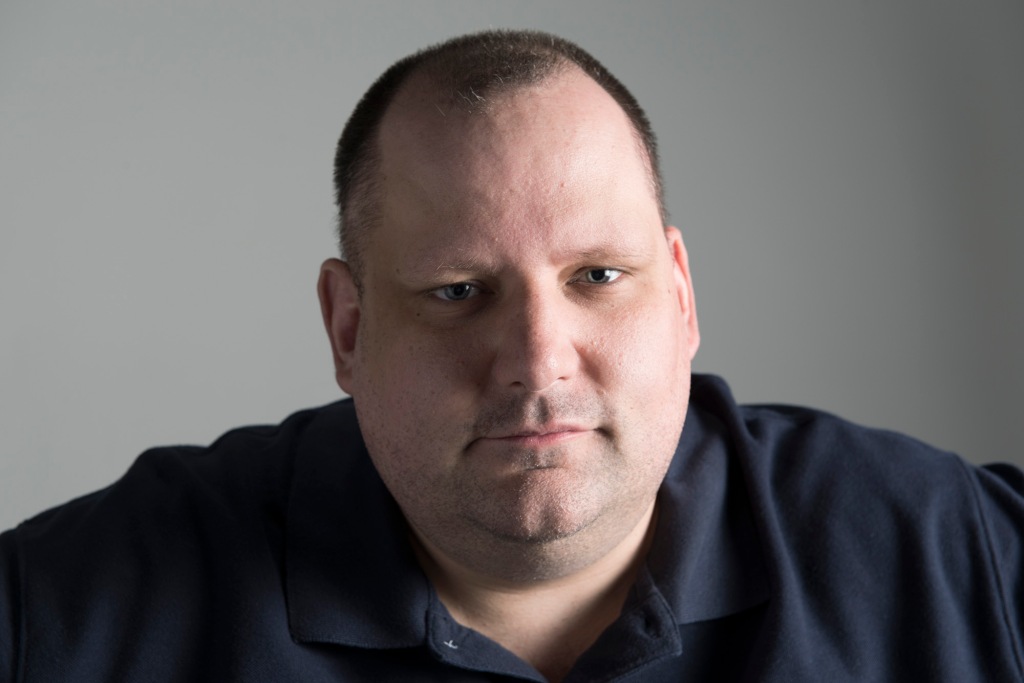
Credit: Matteo Paganelli via UnSplash
This is the year of compounding tragedy.
Coronavirus pandemic for the plague of racism.
Medical quarantine for police-enforced curfews.
It’s all just so damn sad.
America — and Iowa — just started to open up from nearly two months of quarantine. Scientists told us it was too soon, but the economy continues to crumble with nearly a quarter of Americans unemployed.
Good idea or not, we went back out. We shopped. We sat down for a meal at restaurants. We grabbed a beer. There was talk of sports starting again. We attempted normal.
Then a Minneapolis police officer killed George Floyd. The officer shoved his knee into the back of Floyd’s neck. Three other Minneapolis police officers stood by like cowards and listened as Floyd pleaded for air and eventually died.
The justifiable outrage followed. People held protests and demonstrations. A police officer killed Floyd — on video.
Do you see it now? their voices cried out. Do you see what we face?
People protested, marched and demonstrated across the country. In Des Moines, groups held protests at the State Capitol and Des Moines police headquarters without incident.
That was during the day.
At dusk, a different kind of people came to express outrage in unjustifiable ways.
The after-dark crowd shot fireworks at police. They threw rocks and bricks at police. Adults handed lit flares to teenagers to throw at police.
Vandals spray painted buildings downtown and shattered windows at Johnny’s Hall of Fame, Spaghetti Works and the Hy-Vee.
The troubles rumbled up Court Avenue to the Polk County Courthouse to break more windows and spray more paint.
Sunday, scofflaws looted and destroyed at Merle Hay Mall.
Police broke up the crowds with tear gas, pepper spray and flash-bang grenades. The whole ugly scene played out on local TV and news websites.
After two nights of violence, destruction and looting, the Polk County Supervisors ordered a curfew from 9 p.m., Sunday, until 5 a.m., Monday. It is now on hold indefinitely.
And for the first time since my former paragraph factory cut me loose, I was glad not to be in the thick of it — not because I wouldn’t want in on the big story, but because I don’t know what the hell you’re supposed to say about this season of misery.
2020 has been the year of suffering and sadness the likes I’ve not seen in my near 45 years.
COVID-19 killed more than 106,000 Americans, including more than 550 Iowans.
We can’t visit our elders, the most vulnerable population. People wave from a distance, through windows or across video screens.
As former Los Angeles Dodgers announcer Vin Scully said recently, “This is a hard time to go without hugs.”
We shuttered businesses. We stopped going to the office. Ten million people lost their jobs, including me.
And just when we parted the curtain ever so slightly — BOOM! — racism punches us in our collective noses.
Obviously, I condemn the actions of the Minneapolis officer, who now faces a murder charge, and his three criminally negligent partners who allowed this gross depravity to occur.
Yet what comfort can I give? Everything I say seems hollow and trite. Everyone around me seems blessed with a clairvoyance or certainty I lack.
A friend in my right ear says it was extreme left wing anti fascists who whipped up the violence. A friend in my left ear blamed white supremacists for intensifying violence and destruction.
Charles Bukowski, the poet and novelist, once wrote: “Everybody has a different way, everybody has a different idea, and the are all so sure.”
There are a lot of people who are certain these days. Dead certain. Certain enough to be cruel, to threaten and even take lives, to revel in self-righteous fury.
But I’m not sure. I don’t know what the right thing to do or say is. I want to help, but I don’t know how.
The scourge of racism has been with this land since the first slave ships landed in the Americas in the early 1600s.
This nation was built on the backs of slave labor. It took the bloodiest war in the nation’s history to end the practice.
The Thirteenth Amendment ended slavery in 1863, but the open and aggressive efforts to exclude African Americans from society continued unabated for more than 100 years until the 1968 Civil Rights Act.
Since then, we’ve dealt with a more sinister form of racism — the kind that is easy for white people like me to ignore because it doesn’t happen right in front of us every day and thus seems remote given our own experiences.
Then something like the killing of George Floyd at the hands of police happens and we are all forced to confront this ugliness again.
I say “we.” I overstate. I mean “white people.” Most white people live blind to racism not present in their own lives.
I support the marchers but not the looters and vandals. I believe black lives matter. I understand that as a white man, I’ll never wonder if the reason I got pulled over was because of the color of my skin.
I try to treat my fellow humans with love, dignity and respect. I remember that we are all children of God, created in His image.
But my sadness over George Floyd and racism as a whole is great.
Racism runs deeper and is more destructive in this country than anything I can image.
I am lost. I have no wisdom nor course of action that will bring us — all of us, black, white or otherwise — together, which is an unimaginable misery of its own.
I am, at best, a marginal Christian. I am uneasy quoting the Bible, I believe the treatises on human kindness put forth by Jesus in the Beatitudes to be, at a minimum, great philosophy.
Almost daily, I am drawn to the Beatitudes, in particular this line from the Sermon on the Mount described in Matthew 5:7: “Blessed are the merciful for they shall be shown mercy.”
This is something I’m sure about: Every one of us at some point in our lives will need mercy. I have many, many, many times.
Our African-American brothers and sisters need mercy now as they long have.
We must find a way to make mercy the beginning and ending of our lives, for mercy is the only cure for misery.

Cut loose and cashiered by corporate media, lone paragraph stacker Daniel P. Finney makes his way telling stories about his city, state and nation. No more metrics or Google trends, he writes stories about people and life ignored by the oligarchy.
ParagraphStacker.com is reader-supported media. Please consider donating at paypal.me/paragraphstacker.
Content on ParagraphStacker.com is available for reposting and reprint for free to any news organization. Links to the republished piece are appreciated.

Leave a comment